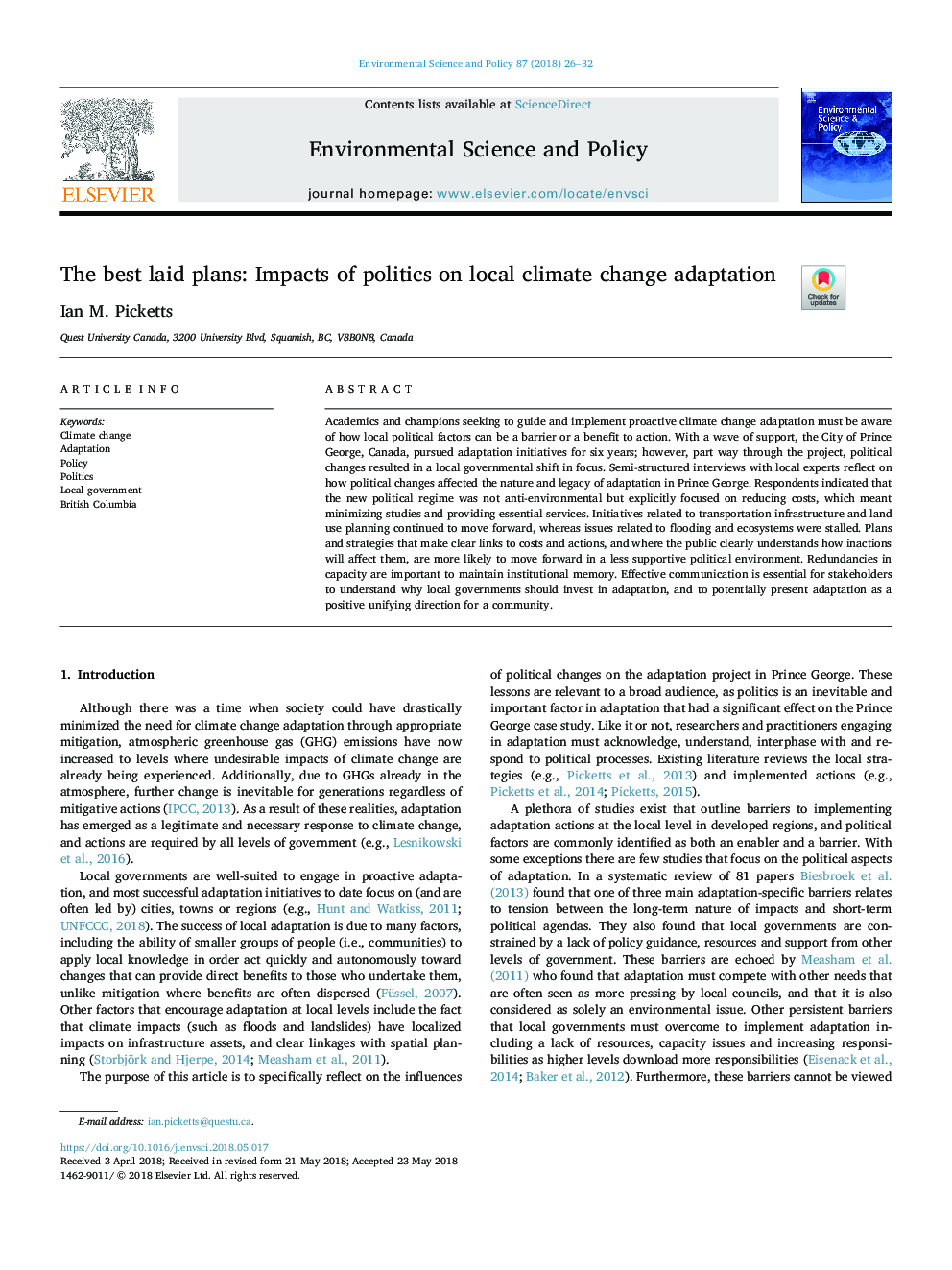| Article ID | Journal | Published Year | Pages | File Type |
|---|---|---|---|---|
| 7465783 | Environmental Science & Policy | 2018 | 7 Pages |
Abstract
Academics and champions seeking to guide and implement proactive climate change adaptation must be aware of how local political factors can be a barrier or a benefit to action. With a wave of support, the City of Prince George, Canada, pursued adaptation initiatives for six years; however, part way through the project, political changes resulted in a local governmental shift in focus. Semi-structured interviews with local experts reflect on how political changes affected the nature and legacy of adaptation in Prince George. Respondents indicated that the new political regime was not anti-environmental but explicitly focused on reducing costs, which meant minimizing studies and providing essential services. Initiatives related to transportation infrastructure and land use planning continued to move forward, whereas issues related to flooding and ecosystems were stalled. Plans and strategies that make clear links to costs and actions, and where the public clearly understands how inactions will affect them, are more likely to move forward in a less supportive political environment. Redundancies in capacity are important to maintain institutional memory. Effective communication is essential for stakeholders to understand why local governments should invest in adaptation, and to potentially present adaptation as a positive unifying direction for a community.
Related Topics
Physical Sciences and Engineering
Energy
Renewable Energy, Sustainability and the Environment
Authors
Ian M. Picketts,
